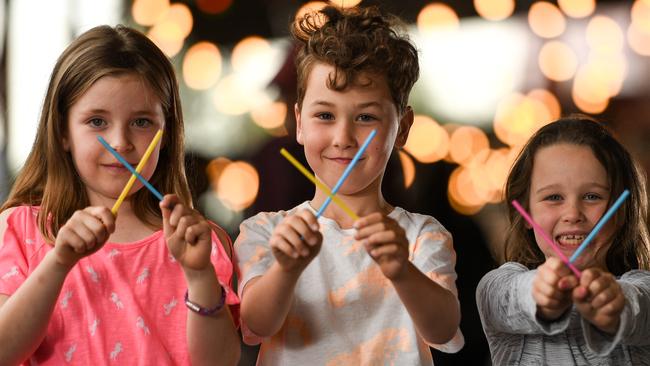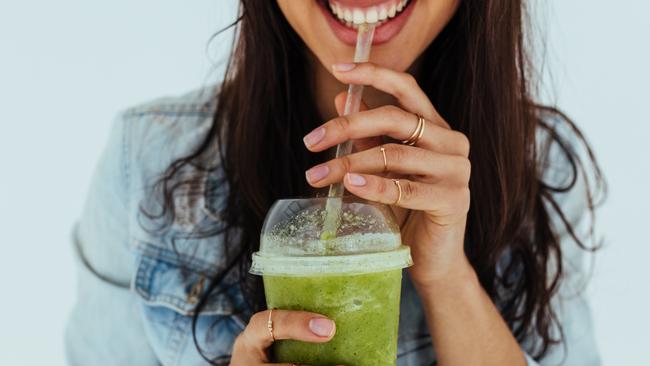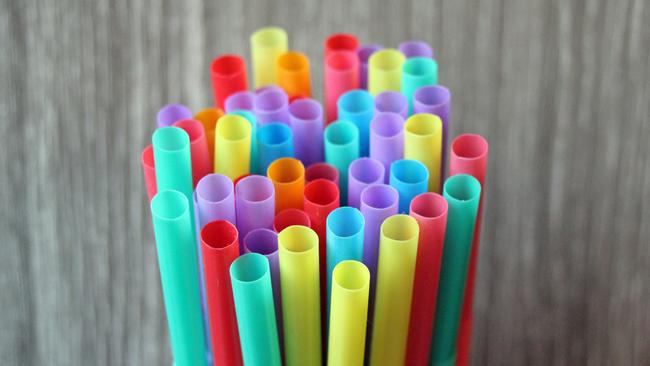Sale, supply or distribution of single-use plastic items to be an offence in Victoria from February
Victorian businesses caught selling straws or other single-use plastics next year could be fined $54,000 under a phase-out plan.
Victoria
Don't miss out on the headlines from Victoria. Followed categories will be added to My News.
Businesses who distribute single-use plastics could be hit with a whopping $54,000 fine under the government’s plan to phase them out.
From February next year it will be an offence to sell, supply or distribute single-use plastic items in Victoria.
These items include straws, cutlery, plates, drink stirrers, cotton bud sticks, as well as polystyrene food and drink containers.
Businesses or individuals that fail to comply will be handed a $54,000 or $10,900 fine respectively.

The tough regulations are similar to fines imposed on plastic bags in 2019.
A person or business that sells plastic bags can be fined $9,900 and $49,500 respectively.
New details of the planned ban also show a massive economic return of $6 for every $1 spent.
It is estimated to bring benefits of $15 million over ten years, which would more than offset the costs of $2 million.
Much of the economic benefit will come from avoiding huge clean-up and landfill costs.
Each year, more than one million single-use items are thrown out, making up around one third of Victoria’s total litter.

Cotton buds and plastic straws make up the biggest share, with more than 400,000 items of each ending up in our landfill every year.
The government is still debating how to enforce the ban, with some concerns remaining over what to do about local manufacturing of the plastics in Victoria currently.
Energy, Environment and Climate Change Minister Lily D’Ambrosio said the government are “working with businesses to support the transition away from single-use items”.
The Australian Industry Group called for a “staggered implementation” of the ban to enable retailers to use up existing stock.

The industry group also insisted on a “nationally-consistent legislation” to minimise negative impacts on businesses.
They said differences between laws across Australia could lead to “a break-down of trust between industry and government”.
“Anecdotally, this ‘stop start’ has left some members fairly questioning whether commencing anything voluntary towards agreed targets is worthwhile, given regulatory interventions by governments routinely disrupt and undermine the work, demand resources and drive-up costs,” an online submission read.
“Differences have scope to undermine economy of scale, in Australia’s already small, isolated market.”
There is debate about whether to include “integrated plastics” in the first phase of the ban, which includes items attached to products such as straws on poppers.
Associate Professor of Marketing at the University of Melbourne Daiane Scaraboto said banning these additional plastics would be beneficial.
“If juice boxes keep coming with plastic straws attached to them … consumers will start questioning why they have to change their habits because of the ban, when these food manufacturers continue to employ plastic,” Ms Scaraboto said.
Boomerang Alliance Director Jeff Angel said the state government needs to have a wider sweeping ban.
“Victoria is late to the party,” Mr Angel said.
“A number of states have already legislated a number of bans … many are moving on to a second list of items to prohibit.
“The economic assessment shows a very significant benefit to business and the environment … I think that should give the Victorian government confidence to move faster and wider.”




